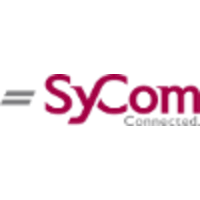Yes, Cisco Partner can be accessed from multiple devices and platforms. As a leading technology business, Cisco recognizes the need of offering a consistent user experience. That is why our Partner program is accessible from PCs, laptops, tablets, and smartphones, independent of operating system. Whether you're at the office, on the go, or working remotely, you can always connect with a Cisco Partner for resources, tools, and support.
List of 20 Best Cisco Partner
DXC Insurance is a software revolutionizing the insurance landscape. Harnessing cutting-edge technology, DXC Insurance simplifies operations, ensures adherence to regulatory standards, and enhances customer delight. With DXC, transform your business...Read More DXC Insurance
Vocus - your trusted partner for Cisco solutions. Our team of expert network professionals is committed to providing top-quality Cisco solutions that drive growth and success for businesses and government organizations. With Vocus, you can confidentl...Read More Vocus
CompuCom, a trusted and certified partner of Cisco, delivers top-of-the-line Optical Network Solutions to businesses. Our solutions are designed to meet the evolving IT needs of businesses and ensure customer satisfaction. With a strong customer base...Read More CompuCom
Velocis is a top-tier Cisco partner in India, committed to modernizing the digital capabilities of our clients. Our software offers reliable, adaptable, and budget-friendly solutions for Enterprise Network systems. With our advanced technology, we ai...Read More Velocis
SyCom Technologies is a top-tier Cisco Gold Partner that offers cutting-edge hardware and software solutions to safeguard your applications. By leveraging the latest innovations from Cisco, our advanced security solutions provide robust protection ag...Read More SyCom
Black Box is a communications system integration software, in partnership with Cisco as a Gold Partner. Experience unparalleled service and customer satisfaction with our award-winning solutions. With the coveted Customer Satisfaction Excellence Gold...Read More Black Box
Ericsson Revenue Manager - a groundbreaking software revolutionizing revenue management in the telecommunications industry. This cutting-edge technology enhances efficiency, streamlines processes and lowers operational costs, elevating financial oper...Read More Ericsson Revenue Manager
SCC - a leading IT solutions provider with 48 years of expertise in bridging the skills gap in the industry. With our customizable services, we offer efficient and scalable solutions to streamline operations, accelerate digital transformation, and pr...Read More SCC
Mirantis leverages cutting-edge technology, such as Kubernetes and OpenStack, to provide innovative cloud infrastructure solutions for businesses. Their expertise ensures seamless scalability, enhanced security, and improved performance, reducing com...Read More Mirantis
Podio - Lead Management is a fully customizable system that simplifies lead tracking for sales teams. It allows you to create your own sales pipeline and reports, making lead management, customer relationship management, and team organization easier...Read More Podio - Lead Management
At Dimension Data, we are a globally recognized provider of cutting-edge digital infrastructure, cloud, and cybersecurity software solutions. We specialize in technology integration and managed services, equipping businesses with the tools and expert...Read More Dimension Data
At CBTS, we are a leading provider of Cisco-powered solutions and services throughout North America. As a Cisco Gold Partner, we offer the latest in hardware and technology to meet the business needs of our clients. Our expertise and comprehensive of...Read More CBTS
CVE Technologies Group is a premier Cisco Gold Partner, offering specialized Cisco solutions for businesses. Our software includes collaboration tools, security automation, network infrastructure, data center storage, and cloud technology. Our skille...Read More CVE Technologies Group
Experience the advanced features of VMware vSphere, turning your computer into a high-performing virtual workstation. This software offers extensive performance monitoring, efficient data management, and reliable storage. Boost productivity and mobil...Read More VMware vSphere
At TTEC Digital, we are proud to be the premier authorized reseller of Ciscos revolutionary Webex Contact Center Enterprise. Our focus is on delivering industry-leading CCaaS solutions for enterprises, utilizing top-of-the-line Cisco technology. With...Read More TTEC Digital
As an authorized Cisco software vendor, Proactive Data Systems specializes in delivering advanced technology solutions for a wide range of communication and computing needs. Our extensive knowledge and partnerships with top suppliers allow us to offe...Read More Proactive Data Systems
FactoryTalk is software solution that revolutionizes industrial operations with its advanced features. It offers real-time data analytics, seamless integration, and increased efficiency to enhance productivity across a wide range of industrial settin...Read More FactoryTalk
CDW Asset - the leading solution for effective IT asset management. Keep track of your technology investments effortlessly with user-friendly tracking and detailed reports. Experience seamless operations and cost reduction through our softwares compr...Read More CDW Asset
VBrick is a enterprise video platform driven by AI technology. Our cutting-edge platform simplifies video content management, delivery, and analytics for multinational businesses. With our secure and flexible solutions, VBrick enables organizations t...Read More VBrick
Experience the ultimate in Cisco switch solutions with DataVox. We are proud to hold the prestigious Cisco Gold Partner status and are renowned for our expertise in switch design and engineering. Our team is well-versed in implementing a range of Cis...Read More DataVox
Learn More About Cisco Partner
- What Is Cisco Partner?
- What Are The Recent Trends In Cisco Partner?
- Benefits Of Using Cisco Partner
- Important Factors To Consider While Purchasing A Cisco Partner?
- What are the key features to look for in Cisco Partner?
- Why Do Businesses Need Cisco Partner?
- How Much Time Is Required To Implement Cisco Partner?
- What Is The Level Of Customization Available In Cisco Partner?
- Which Industries Can Benefit The Most From Cisco Partner?
- Conclusion
What Is Cisco Partner?
Cisco is a renowned worldwide technology corporation that provides a diverse set of products and services to organizations of all sizes. As a company that values innovation and client success, Cisco has created a Partner program to collaborate and engage with other companies to bring excellent solutions and support to customers. Cisco Partners are businesses or organizations that have been carefully identified and authorized by Cisco to resell their products and services.
Cisco trains and certifies these partners to provide high-quality products, implementation services, and continuing support to their customers. They serve as an extension of Cisco's sales and technical teams, offering specialized skills, industry knowledge, and client insights. Being a Cisco Partner provides access to industry-leading technology solutions and services, such as training, tools, and support.
This alliance is based on trust and collaboration, with the common objective of allowing businesses to prosper in a digital-first future. Cisco Partners have three levels: Select, Premier, and Gold. Each level reflects an increased level of knowledge, assistance, and client satisfaction. As a buyer, it's critical to understand these levels and select a partner who meets your specific business requirements.
Working with a Cisco Partner allows you to take use of a diverse array of products and services, including networking, cybersecurity, collaboration, cloud, and data center solutions. With their extensive expertise and experience, they can personalize these solutions to your specific business needs, resulting in greater productivity, efficiency, and growth.
What Are The Recent Trends In Cisco Partner?
In recent years, Cisco has expanded its portfolio and enhanced its services for its partners to better suit the market's changing needs. As a result, numerous trends have emerged within the Cisco Partner ecosystem.
1. Shift To Services: As the need for cloud-based services grows, Cisco partners are shifting their focus from hardware sales to managed services, consulting, and support. This trend is projected to continue as more firms embrace digital transformation.
2. Embracing Software Defined Networking (SDN): SDN is gaining popularity as a low-cost, flexible network management solution. Cisco has invested substantially in this technology, and its partners have begun to adopt and provide SDN solutions to their clients.
3. Integration With IoT: As the Internet of Things (IoT) expands, Cisco partners are using their network infrastructure knowledge to offer end-to-end IoT solutions. This covers not just the hardware, but also the software and services required to operate in a connected environment.
4. Focus On Security: With the rise of cyber threats, security has become a primary priority for businesses of all kinds. Cisco partners are now providing advanced security solutions alongside their networking and collaboration capabilities to assist their clients in protecting their data and networks.
5. Virtualization And Cloud Adoption: Because of their capacity to cut costs and improve scalability, virtualization and cloud services are becoming increasingly popular. Cisco partners are increasingly combining virtualization and cloud technologies into their solutions to provide clients with a more holistic solution.
6. Collaboration And Partnership: In a fast changing technology world, Cisco partners are working with other solution providers and technology businesses to broaden their product offerings and give a more integrated solution to their clients.
Benefits Of Using Cisco Partner
As a leading provider of networking solutions, Cisco provides a diverse set of products and services to organizations of all sizes. However, working with Cisco through their Cisco Partner program might bring even more benefits to buyers. Here are the top perks of working with a Cisco Partner, including product discounts and expert assistance.
1. Access To Special Items And Solutions: As a Cisco Partner, you will have access to their entire product and solution portfolio. Buyers may now offer their clients a thorough and specialized strategy to networking. Cisco Partners get access to the most up-to-date and innovative networking hardware, software, and services available on the market.
2. Competitive Discounts And Pricing: Partnering with Cisco also means getting competitive discounts and prices on their products. This not only saves purchasers money, but also enables them to provide more competitive pricing to their clients. Partnering with a Cisco Partner is an excellent option for organizations wishing to invest in high-quality networking solutions at a moderate cost.
3. Comprehensive Training And Materials: One of the most significant benefits of using a Cisco Partner is access to substantial training and resources. Cisco provides comprehensive training programs to their partners, ensuring that they are competent and up to date on the newest products and solutions. Buyers can rely on their Cisco Partner to provide expert guidance and assistance throughout the purchasing process.
4. Dedicated Technical Support: Partnering with Cisco provides access to their dedicated technical support staff. This team is specifically trained to deal with any technical issues or concerns that buyers may have. From troubleshooting to product support, Cisco Partners are prepared to give buyers with timely and dependable assistance, providing a hassle-free experience.
5. Excellent Client Service: Customer service is critical in any business collaboration, and Cisco Partners are dedicated to providing excellent support to their customers. From product selection to advise and support, Cisco Partners are committed to satisfying their clients' needs and expectations. This degree of customized service is what distinguishes Cisco Partners from other networking vendors.
Important Factors To Consider While Purchasing A Cisco Partner?
When it comes to selecting a Cisco Partner, there are numerous key elements to consider in order to make the best option for your company. As a major provider of networking solutions, Cisco is well-known for its dependable equipment and services, but finding the proper partner can significantly improve the success of your investment. Before making a purchase, consider the following criteria.
1. Skill And Experience: One of the most important elements to consider when choosing a Cisco Partner is their degree of skill and experience. The partner should have certified professionals who are knowledgeable about Cisco's products and services. This ensures that their products integrate seamlessly into your existing network and provide a high degree of technical assistance.
2. Industry Specialization: Because Cisco Partners specialize in different industries, it's critical to choose one with knowledge in your specific industry. This is especially crucial for companies in highly specialized industries like healthcare and finance, where compliance and security are key objectives.
3. Service Offerings: While some Cisco Partners specialize primarily in sales, others provide a wide range of services including implementation, training, and ongoing support. Consider your company's objectives and goals to choose which partner provides the best services for you. Having a partner that can provide full-service assistance can save you time and money in the long term.
4. Customer Satisfaction: One of the finest indicators of a Cisco Partner's performance is their customer satisfaction rating. Check for reviews and testimonials from their current clientele to get a sense of their track record and the kind of service they offer. A pleased customer base is a sign of a trustworthy partner.
5. Flexible Solutions: As your company grows and expands, your networking requirements may alter. Look for a Cisco Partner that provides adaptable solutions to your shifting demands. This can help to future-proof your investment and guarantee that you are making the most of your collaboration.
6. Cost-Effectiveness: Purchasing a Cisco Partner requires a large investment, thus the partnership's cost-effectiveness must be considered. Look for a partner who provides competitive pricing and a positive return on investment. Keep in mind the long-term advantages and extra value that a partner can provide to your company.
What are the key features to look for in Cisco Partner?
When evaluating a Cisco Partner, there are a few crucial qualities to look for to guarantee that you are selecting the ideal one for your company's needs.
1. Collaboration Level: When evaluating a Cisco Partner, the first factor to examine is their level of collaboration. Cisco has four partnership levels: Select, Premier, Gold, and Master, with each providing varying levels of expertise and advantages. Select partners are the entry level, whilst Master partners are the top tier, with the most advanced skills and resources.
2. Specializations: Another factor to consider is the partner's specialization. Cisco partners can specialize in a wide range of technologies and solutions, including networking, security, collaboration, and data centers. Partner specializations highlight their experience in key areas and might assist you in finding the best partner for your unique need.
3. Certifications: A Cisco Partner's certifications are important to evaluate. Cisco provides a variety of certifications to its partners, demonstrating their degree of knowledge and competence. Look for partners with certifications that are relevant to the services or solutions you need.
4. Support And Services: When selecting a Cisco Partner, it is critical to examine the support and services that they provide. This comprises pre-sales, implementation, and after-sales assistance. Make sure the partner can provide the support and services you need to properly integrate and manage your Cisco solutions.
5. Industry Experience: The partner's industry experience is an important component to examine. A partner with industry experience will have a better grasp of your unique goals and issues, allowing them to give more customized solutions.
6. Client Reviews: Before choosing a Cisco Partner, read their client reviews and testimonies. This will offer you a sense of their track record and client satisfaction rates.
Why Do Businesses Need Cisco Partner?
Businesses require a Cisco Partner for a variety of reasons. First and foremost, a Cisco Partner gives organizations access to a wide selection of cutting-edge technological solutions that can help them increase productivity, improve communication, and streamline operations. With Cisco's comprehensive product and service portfolio, a Cisco Partner can provide bespoke solutions to fit each business's unique needs.
Furthermore, collaborating with a Cisco Partner gives firms access to expert knowledge and support. Cisco Partners are trained specialists with a thorough understanding of Cisco's products and can provide useful insights and recommendations to enterprises. They also get direct access to Cisco's technical support team, which ensures that any difficulties are resolved quickly and efficiently.
Furthermore, a Cisco Partner may help businesses save time and money by handling the deployment, integration, and maintenance of Cisco's IT solutions. This enables firms to focus on their core operations while leaving the technical aspects to experts. Working with a Cisco Partner also grants organizations access to special promotions, discounts, and training opportunities.
These advantages can help firms stay ahead of the competition and constantly enhance their operations. Finally, working with Cisco through a Cisco Partner allows businesses to connect themselves with a trusted and reputable brand in their field. This can help firms create trust with their customers and stakeholders, thereby improving their reputation and credibility.
How Much Time Is Required To Implement Cisco Partner?
When considering becoming a Cisco Partner, one of the most pressing issues prospective purchasers have is how long it will take to deploy. The answer to this question varies depending on a number of circumstances, including the partnership's scope, the experience of the implementing team, and the organization's specific objectives and expectations.
However, there are certain broad rules that might help purchasers understand the process for becoming a Cisco partner. Most firms should expect the implementation process to take between three and six months. This timeline allows for adequate planning, preparation, and training before the partnership is fully incorporated into the organization's activities.
The first step in the implementation process is the discovery and evaluation phase. During this stage, the organization and the Cisco Partner team will collaborate to identify the company's unique needs and how the partnership can meet them. This phase can last two to four weeks, depending on the intricacy of the organization's infrastructure.
After the finding and assessment phases are completed, the implementation step can begin. This entails establishing the required infrastructure and configuring the systems to work flawlessly together. This phase can last six to twelve weeks, depending on the organization's size and complexity. Following the initial setup, the organization will go through a testing and training phase.
This includes testing the systems to ensure they are working properly and training the organization's personnel so they are comfortable using the new technology. This phase can last anywhere from four to eight weeks. Finally, during the deployment and support phase, the Cisco Partner team will provide continuing support and help until the relationship is fully integrated into the organization's operations.
The length of this phase varies according to the organization's demands and the level of help necessary. It is important to remember that these timelines are estimations and may vary depending on each organization's specific circumstances. It is advised that enterprises collaborate closely with their Cisco Partner team to develop a tailored implementation plan that meets their specific requirements and timetable.
What Is The Level Of Customization Available In Cisco Partner?
When choosing a Cisco Partner, customization is an important factor to consider. Cisco provides a variety of partner programs and certifications to satisfy the specific demands of enterprises. The level of customization possible depends on the type of relationship and the program. To begin, Cisco provides four different degrees of partnership: Registered, Select, Premier, and Gold.
Each level has its own set of prerequisites, bonuses, and resources. For example, Registered partners get access to basic tools and support, whereas Gold partners have access to a broader range of services, such as advanced training and marketing support. Furthermore, under each partnership level, partners have various specialization possibilities to choose from.
These expertise include collaboration, security, data centers, and networking. Partners can choose the specialism that best fits their company goals and experience, allowing them to provide more customized solutions to their clients. Cisco also has a Partner Enablement Framework, which provides partners with resources and playbooks to assist them understand their clients' specific needs and create tailored solutions.
This framework provides tools, templates, and best practices for each stage of the sales cycle. Furthermore, Cisco provides targeted training and certifications to partners to help them improve their skills and knowledge in certain technologies and solutions. This enables partners to better understand their clients' needs and provide tailored solutions.
Which Industries Can Benefit The Most From Cisco Partner?
Cisco, a trusted industry leader in networking, cybersecurity, and collaboration solutions, has a diverse set of partners across industries. However, certain industries can profit the most from becoming a Cisco Partner.
1. Information Technology (IT) Industry: The IT industry is at the vanguard of digital transformation, and Cisco Partners can provide a full range of hardware, software, and services to assist enterprises in navigating this fast changing landscape. IT organizations may strengthen their products and provide a competitive advantage to their clients by leveraging Cisco's superior networking, cloud, and security technologies.
2. Healthcare Business: The healthcare business is becoming increasingly reliant on technology to improve patient care, increase operational efficiency, and protect sensitive data. Cisco Partners can deliver tailored solutions to satisfy this sector's specific demands, such as secure IT infrastructure, collaboration tools, and Telehealth solutions.
3. Education Industry: Education has changed dramatically in recent years, with technology playing a critical role in enabling digital learning. Cisco's partnerships with premier educational institutions, as well as their commitment to innovation, make them an excellent alternative for schools and colleges seeking to update their IT infrastructure, increase communication, and enable remote learning.
4. Financial Services Industry: The financial sector is heavily regulated, with security as a major emphasis. Cisco Partners can assist financial institutions in being compliant while also proactively addressing cyber threats. Financial institutions may protect their sensitive data and key infrastructure with Cisco's advanced security solutions, such as firewalls and threat intelligence.
5. Retail: In the fast-paced retail industry, adaptability is essential. Cisco's software-defined networking solutions enable merchants to quickly respond to changing industry trends and customer needs. Cisco's collaboration solutions can also increase communication and streamline operations for multi-location merchants.
6. Government And Public Sector: Government agencies and public sector firms manage a tremendous volume of sensitive information while serving a broad population. With Cisco's secure networking and collaboration solutions, these organizations can effectively manage their data and promote efficient communication while conforming to regulatory standards.
Conclusion
To summarize, selecting the correct Cisco Partner is critical for any firm seeking to integrate Cisco products and solutions. Given the range of partners available, purchasers must assess their individual needs, budget, and goals before making a decision. By following the steps provided in this buyer's guide, purchasers may ensure that they locate a trustworthy and reputable Cisco Partner who can efficiently support and improve their network infrastructure.
When analyzing potential partners, purchasers should conduct extensive research on their credentials, competence, and certifications. They should also assess the partner's degree of assistance, services provided, and pricing structure. Buyers should also consider resources such as client testimonials and reviews to assess the partner's track record and customer satisfaction.
Buyers must have a thorough awareness of their own infrastructure and business requirements in order to select a partner who can deliver customized solutions that fit their objectives. Buyers should also assess the partner's availability of technical support, training possibilities, and future growth and scalability.
Finally, the ideal Cisco Partner should have a proven track record of success, extensive knowledge of Cisco products, and a dedication to customer satisfaction. By following the criteria in this buyer's guide, customers may make an informed decision and select a partner who can effectively support their Cisco infrastructure and assist them in achieving their business objectives.
Cisco Partner FAQ's
Can Cisco Partner Be Accessed Across Multiple Devices And Platforms?
Is Cisco Partner Future-Proof And Adaptable To Emerging Technologies Like Ai, Blockchain Or Iot?
Yes, Cisco Partner is future-proof and easily adaptable to upcoming technologies such as artificial intelligence, blockchain, and the Internet of Things. As a leading technology business, Cisco is always investing in R&D to ensure that its partners have the most up-to-date tools and resources to stay ahead of the competition. In addition, Cisco provides training and certification programs to help its partners effectively understand and deploy new technologies, preparing them to meet future demands.
Is There A Free Trial Offered To Assess Cisco Partner Before Committing?
Yes, Cisco has a trial program called the Cisco Partner Talent Program that allows potential partners to test their capabilities and fit before committing to a collaboration. This program gives partners access to Cisco tools, training, and support resources for a limited time, allowing them to gain experience and knowledge of the Cisco ecosystem. It also enables Cisco to assess the partner's potential for success prior to making a definitive commitment.
Does Cisco Partner Offer Data Security Features And Meet Regulatory Compliance Standards?
Yes, Cisco Partner provides data security features to help protect sensitive information from cyber attacks. They also provide solutions that comply with regulatory standards such as GDPR, HIPAA, and PCI DSS. Their comprehensive security solutions include firewalls, encryption, access control, and monitoring tools.
Cisco Partners are continually updating their security procedures to keep ahead of growing threats and comply with industry laws. With Cisco Partner, you can be confident that your data is secure and in accordance with regulatory standards.
Can Cisco Partner Integrate Seamlessly With Existing Tools And Platforms?
Yes, Cisco Partner is designed to work easily with existing tools and platforms, giving a unified solution for managing and optimizing network activities. Cisco Partner's open architecture and compatibility with numerous industry-standard protocols enable it to readily interact with other systems and workflows, resulting in smooth and efficient data transmission. This enables organizations to maximize their existing investments while reducing operations and improving overall network efficiency.






















